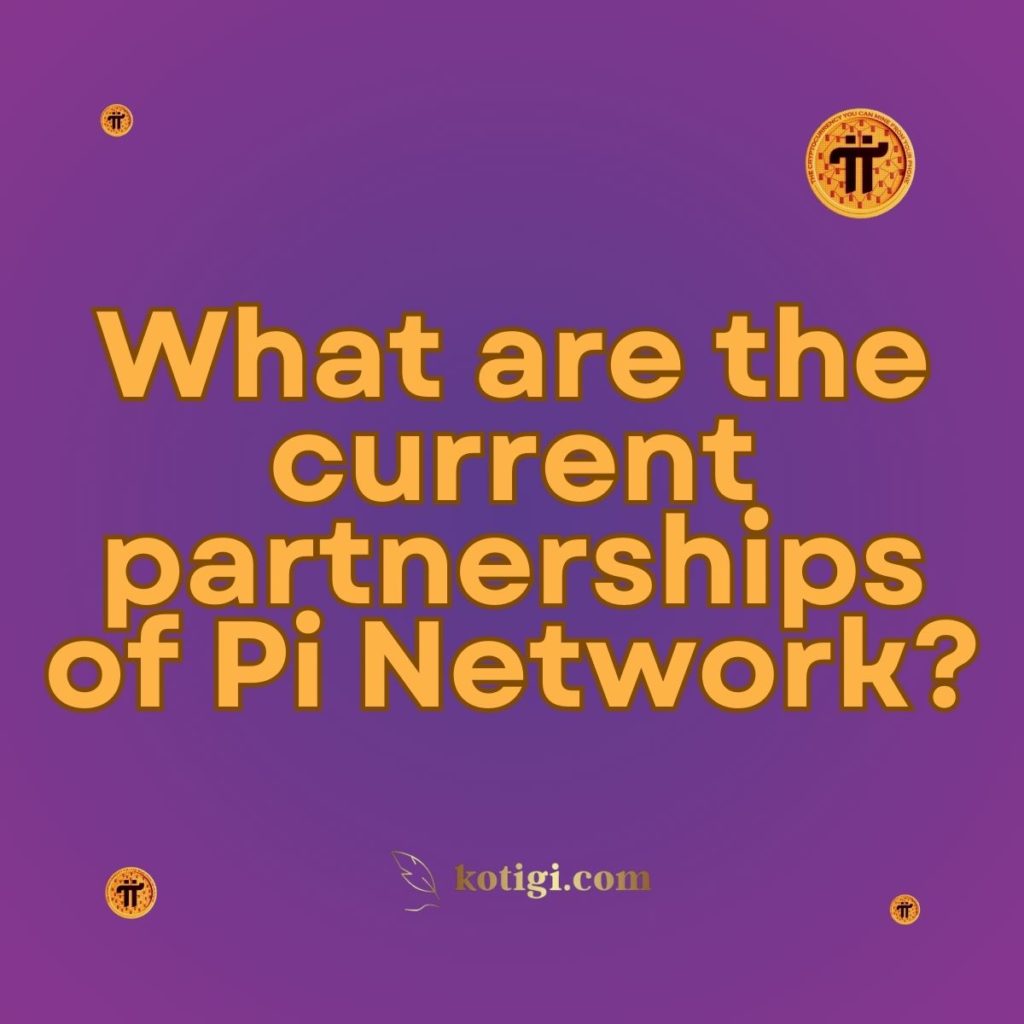
What are the current partnerships of Pi Network?
As of now, Pi Network has not publicly announced any official partnerships with major companies, institutions, or governments. The Pi Network team has primarily focused on developing the platform, growing its user base, and preparing for its mainnet launch. However, there are some important aspects and potential collaborations worth noting:
1. Community-Driven Collaborations
1.1. Developer Ecosystem:
Pi Network has encouraged developers within its community to create decentralized applications (dApps) that will eventually run on its blockchain. While these initiatives are not formal partnerships, they represent grassroots collaboration where community members contribute to the ecosystem’s growth by building useful applications and services.
1.2. Ambassador Programs:
Pi Network has informal ambassador programs where dedicated community members help promote and educate others about the platform. These ambassadors often engage in local events, online meetups, and other outreach activities, effectively acting as unofficial partners in spreading the word about Pi Network.
2. Potential for Future Partnerships
2.1. Pre-Mainnet Stage:
Since Pi Network is still in its pre-mainnet stage, the focus has been on development rather than forming high-profile partnerships. However, as the network transitions to its mainnet, the likelihood of formal partnerships with businesses, tech companies, or financial institutions may increase.
2.2. Strategic Collaborations:
Pi Network’s roadmap suggests that future collaborations could involve integrating Pi as a payment option in e-commerce, partnering with other blockchain platforms for interoperability, or collaborating with fintech companies to enhance its financial ecosystem. These potential partnerships could emerge as Pi Network matures and establishes itself in the cryptocurrency market.
3. Academic and Research Initiatives
The founding team of Pi Network, which includes graduates from Stanford University, has a strong academic background. While there haven’t been any official partnerships with academic institutions announced, the team’s connections could pave the way for future research collaborations or educational initiatives related to blockchain technology and decentralized finance (DeFi).
4. Focus on Decentralization
Pi Network has emphasized a decentralized approach to its growth, relying heavily on its community for development and expansion. This grassroots strategy aligns with the core principles of blockchain technology, which prioritize decentralization and community governance over centralized partnerships.
5. Prospects for Partnership Announcements
5.1. Post-Mainnet Opportunities:
Once Pi Network launches its mainnet and establishes itself as a functioning blockchain platform, the network may start announcing partnerships with various companies and organizations. These could include collaborations in areas like payments, DeFi, supply chain management, and more.
5.2. Marketing and Outreach:
As Pi Network’s user base grows, the platform could attract interest from businesses looking to leverage its large and engaged community. Marketing partnerships, sponsorships, and co-branding initiatives could become viable options for Pi Network to explore in the future.
Conclusion
Currently, Pi Network does not have any publicly known official partnerships with major companies or institutions. The platform is still in its developmental stages, focusing on building its technology and user base. However, as Pi Network progresses towards its mainnet launch, the potential for strategic partnerships increases. Future collaborations could involve integrating Pi into various industries, partnering with developers for dApp creation, or forming alliances with financial institutions to enhance the platform’s utility and adoption. For now, Pi Network’s growth remains primarily driven by its community and decentralized development efforts.




